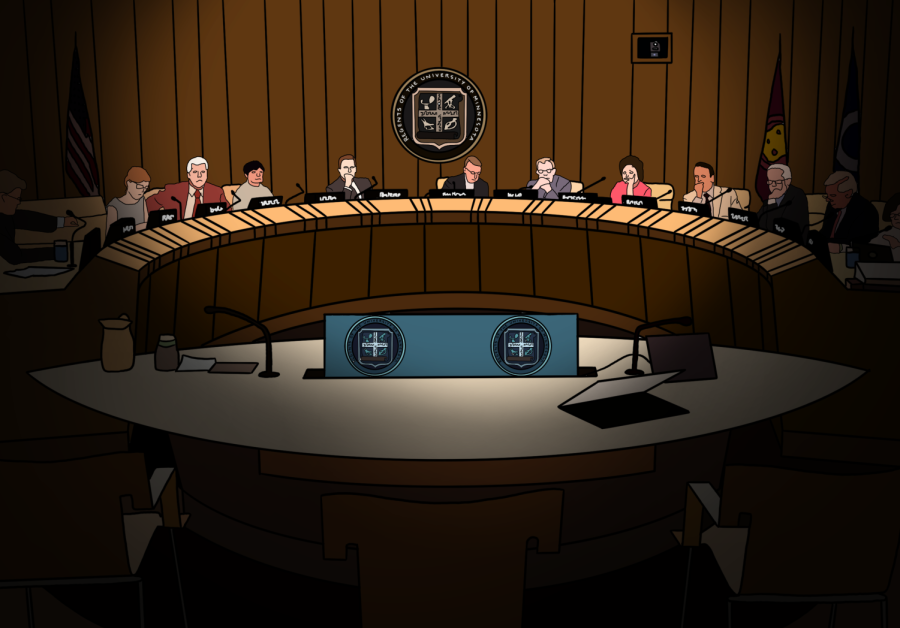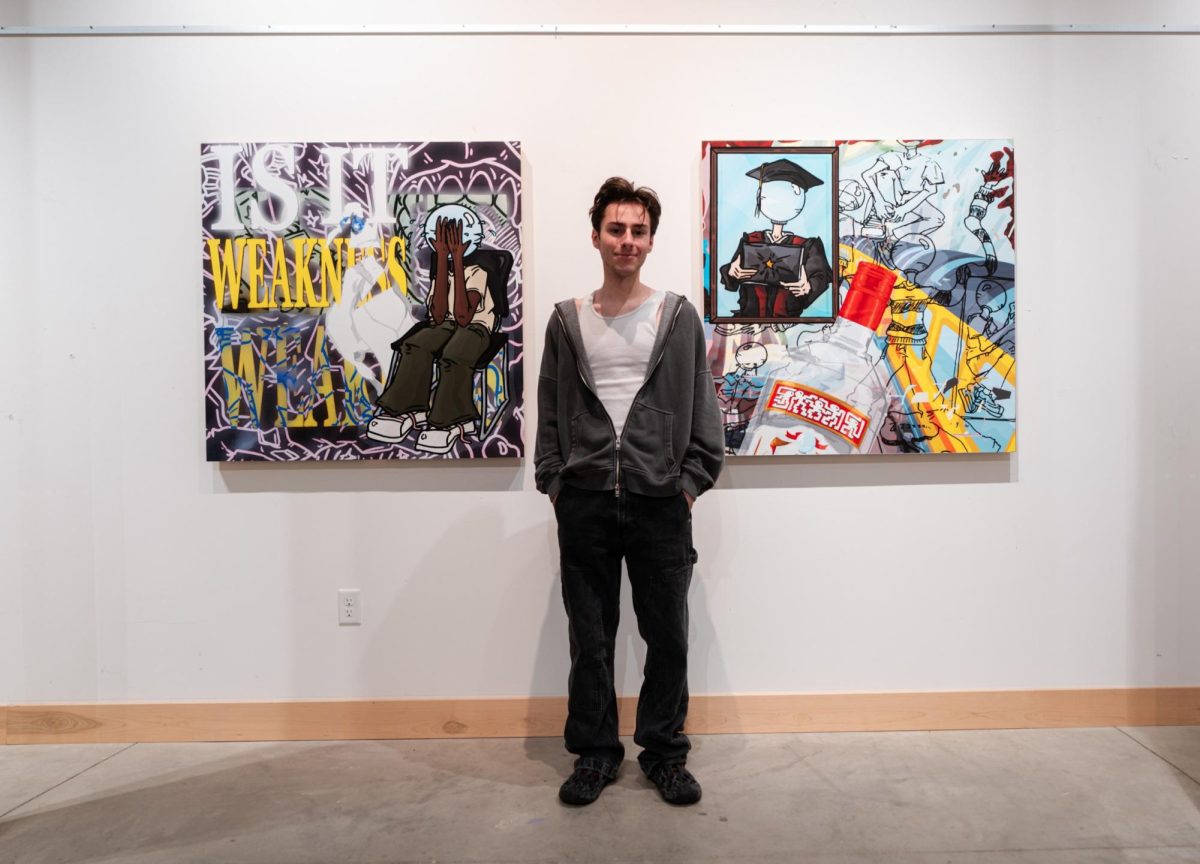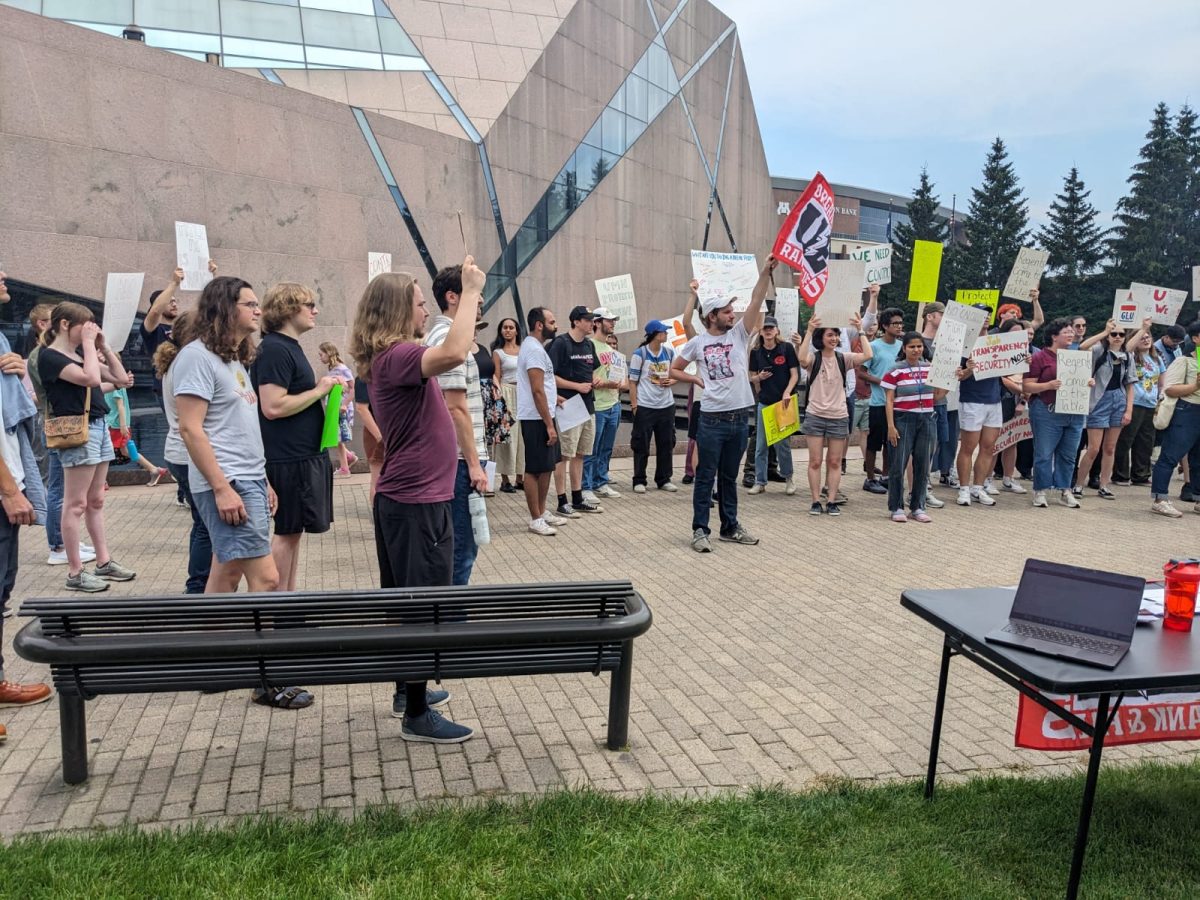University of Minnesota Board of Regents votes compiled over the last year show voting trends among regents, the differences in members’ voting styles and how often the board has agreed unanimously.
The Board of Regents consists of 12 members who serve six-year terms and oversee the functions and decisions of the University. The members represent all eight congressional districts as well as four at large positions and are elected by the Minnesota State Legislature.
At its monthly meetings, the board votes on actions ranging from University presidential compensation to the Annual Operating Budget. While these votes are made public through meeting minutes, there is no formal compilation of this information. The Minnesota Daily collected votes from June 2021 through July 2022 to present a clearer picture of the board’s decisions.
At the time of these votes, David McMillian served on the board before becoming the interim chancellor of the University of Minnesota-Duluth. The newly elected Regent Tadd Johnson began his term in September and will not be represented in the data.
Breaking down the trends
Within Board decision making, regents tend to vote the same a majority of the time. From June 2021 to July 2022, the board took 109 votes, 81 of which were unanimous and 28 that were split among regents. These split votes occur about 26% of the time, however, there are trends in which regents stray from the majority vote.
While many regents including Chair Ken Powell, Regent Ruth Johnson and Regent Doug Huebsch are in the majority 100% of the time, others follow closely behind, including regents Steve Sviggum and Kodi Verhalen both at 96.43% and Bo Thao-Urabe at 94.12%.
Before he became Duluth’s interim chancellor, McMillian served on the Board for 11 years. His appointment as interim chancellor was surrounded by controversy because President Joan Gabel, whose salary increase he voted on in December 2021, was supposed to appoint the position. After community members voiced concern, Gabel deferred the decision to the board.
McMillan voted with the board majority 100% of the time from 2021-22.
Regents James Farnsworth and Mike Kenyanya fall in the middle, voting 35.71% and 69.23% of the time with the majority in split votes.
“It's clear on our Board how the votes are going to line up,” Farnsworth said. “I think it's unfortunate that perhaps we have something that's characterized as the majority, although I know that's common for governing boards.”
One member of the board who stands out as the outlier is Regent Darrin Rosha. Voting with the majority in split votes 7.14% of the time, Rosha almost always deviates from the rest of the group when the vote is not unanimous, particularly if the decision would raise administrative costs and student tuition.
Known for being one of the most vocal members on the board, Rosha often raises many questions before they take votes. According to the data, Rosha proposed 14 amendments or resolutions to board votes, being the only board member in the last year to do so.
Rosha raises these resolutions to gain a better understanding of the subject matter, ensure the Board knows what they are voting on and to show outside members how other regents will vote on specific issues, he said. Some board members discuss materials before the meetings, but Rosha is typically not involved in these discussions, according to Rosha.
“Usually, my first opportunity to engage is at the meetings,” Rosha said. “I am fully dedicated to being an honest broker.”
Decision making considerations
Though the trends show broad unanimity among the regents, many of them bring different values and experiences to the table and make their decisions based on various factors. Some remain more loyal to the administration, while others tend to raise more questions in the process.
Regent Janie Mayeron’s experience prior to her election in 2019 includes serving as the president of the University of Minnesota Alumni Association and being a United States magistrate judge. She said she evaluates the priorities of the University in her decision making and votes to help support the institution.
"Whatever bias or personal stake in the outcome I may have, I have to review all the materials, listen to what everybody says, ask good questions and remind myself that I am not the manager," Mayeron said. “My role in governance is to set policy, manage policy and make sure our mission is being fulfilled.”
One block of regents that includes Powell, Johnson, Huebsch and Mayeron vote with University administration goals every time, while regents Mary Davenport, Steve Sviggum, Thao-Urabe and Verhalen vote close to this.
Regents Rosha and Farnsworth don’t vote with this group as often \during split votes, taking various approaches to how they arrive at their decisions.
As a former University student and member of the University Student Government (formerly known as the Minnesota Student Association), Farnsworth has experience with the board as both a student and a regent.
“My recent affiliation with the University certainly has shaped my way that I look at these particular issues, maintaining connections with current students and having an experience as a student in the pandemic,” Farnsworth said. “What that felt like certainly enhances my view now as a policymaker and figuring out how to best approach the decisions that are in front of the board.”
Initially joining the Board in 1989, Rosha is the longest serving regent out of the 12 members.
Rosha has expressed concern about the increasing unanimity of the board and questioned the rising administrative salaries.
“We talk about these decisions being market-based, and yet our board is not, it's a public service,” Rosha said. “Their [other regents] decision making is based solely on what they are given by the administration and to be supportive of it.”
A possible expansion of public engagement opportunities
Typically, public university governance boards include opportunities for public comment and engagement, which can directly expose board members to other ideas or concerns. The University only accepts public comments through requests approved by the chair or during a one-hour slot during the annual budget forum every May. Public access to the University Board of Regents is currently being reviewed, but some members are hesitant.
In the board’s meeting on Oct. 14, the Office of the Board of Regents gave a presentation on public engagement in comparison to the University’s peer institutions. Most of the institutions the office decided to compare do not have open public comment opportunities, but four – University of Michigan, Michigan State, University of Nebraska and UCLA – allow for open public commentary with advanced sign-up.
The board discussed the current policy and whether it should be expanded.
“I wouldn't be opposed to expanding public forums for specific issues,” Huebsch said at the October meeting. “Having an open mic would not be a good policy because we don’t have the counterpoints.”
Other members, including Farnsworth and Kenyanya, are advocating for a more open system of public engagement.
“In my nascent days in public leadership [in the UMN student government], as you lean into leadership more, you find yourself maybe a little more removed from the people you're leading or representing,” Kenyanya said at the October meeting.
The board will continue to discuss potential changes to public engagement at their upcoming meeting on Dec. 16.
Correction: A previous version of this article misstated when James Farnsworth attended the University. He is a former student.




























helland
Dec 10, 2022 at 4:18 pm
First comic update of the day!
o.92186.ME/mt10041F